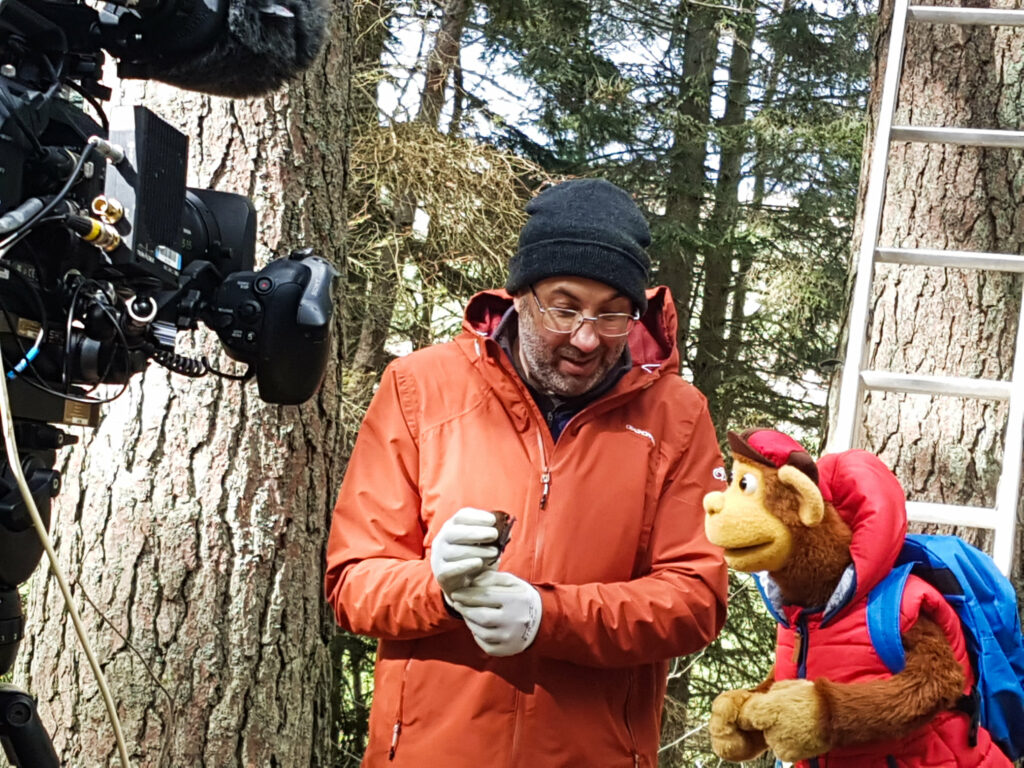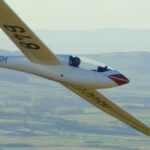Most of SGU’s instructors are club members, giving their services voluntarily. But how easy is it to qualify as an instructor and what do they get out of it? We asked David Dodds, the latest instructor to join the SGU instructing team.
How it began
SGC: When did you take up gliding and what got you into it?
David: I come from a gliding family (my birth was announced in ‘Sailplane and Gliding’ magazine!) and had a fantastic childhood messing around at weekends at a small airfield in Yorkshire, whilst my Dad was instructing. I probably got in the way all the time, but they were a tolerant bunch and I got an occasional flight I always knew that one day I’d learn to fly gliders, but I was in my forties before I got around to it.
SGC: What was it like, coming back to gliding after thirty years?
David: It was amazing. Portmoak is a much bigger club than the one I grew up around, and aircraft design had advanced, but glider pilots hadn’t changed at all. There’s a welcoming air about a gliding club – people from all backgrounds, coming together to have a great time and help each other out. I had a trial lesson and knew straight away that this was for me.
Work with flying
SGC: Is it true that flying is part of your job?
David: Ha ha. In a sense that’s true. I’m a consultant ecologist and specialise in working with bats. I spend a lot of my working life monitoring and handling wild bats under license and as a licensed trainer I train and assess other ecologists who want to gain licenses to work with bats.
SGC: Rumour has it you’ve appeared on TV?
David: Yes, I’ve been lucky enough to appear on several TV programmes, promoting bat conservation. Appearing with people like Bill Oddie and Chris Packham was great, but my team like to bring me back to earth by reminding me that in “Milkshake Monkey’s Grand Adventure” I played second fiddle to a cloth puppet monkey. Great fun though!

The road to instructing
SGC: What led you to train as an instructor?
David: I enjoy teaching and for years I’d been saying it was something I’d like to do in the future, but never felt I was a sufficiently skilled or experienced pilot. Instructors always seemed to be the crème de la crème and I never really felt my flying standards were good enough. A conversation with our then Chief Flying Instructor, Kate Byrne changed that. She pointed out that I only needed to be a competent pilot – if my flying had any deficiencies the instructor training would help me identify and resolve them. After a couple of check-flights with her I found myself starting on the road to becoming an instructor.
SGC: Did you enjoy the instructor training?
David: Immensely – much more than I expected to. It’s very hard work, but it gave me a whole new challenge within the hobby to get my teeth into. It’s fascinating to take something you do almost automatically, say a co-ordinated turn, take it apart into all the small elements that make it up and then learn how to teach it to somebody who has never done it before. Spotting their errors and helping them correct them is really fulfilling.
Training to train
SGC: How does the training work?
David: The training is overseen by the British Gliding Association, who have recently broadened the options for trainee instructors and I was able to benefit from the changes. Traditionally trainees went away for a couple of intensive one-week courses, interspersed with coaching at their home club. That option is still available, but it’s now possible to work with an instructor coach at your home club and work through the course modules at your own pace.
You start with a teaching and learning module, taught on Zoom over several evenings, then it’s on to the flying. Stage 1 is mostly general flying exercises (and believe me, there are more of them than you remember!). Stage 2 includes the more safety-critical exercises: winch-launching, aerotowing, spin avoidance and approach and landing.
I found the stage 1 intensive course helpful in that I could focus purely on gliding for the week and being in a group of trainees was good too, as we helped and encouraged each other. For stage 2 I worked with an instructor coach one-to-one and I enjoyed the slower pace and being able to spend more time at home, studying each module before doing the briefings (there’s a lot of briefing!) and then flying the exercises.

SGC: Do you have to pass exams?
David: Not as such. You have to re-sit the bronze exam and achieve a higher pass rate. Other than that it’s all about the flying. Each module needs to be signed off by an instructor coach and at the end of stage 1 (roughly half-way) a regional examiner assesses your progress by having you do some briefings and teaching them some exercises in the air.
At the end of your training you have an assessment of competence, in which an RE puts you through your paces and checks if you’re ready to instruct. That sounds nerve-wracking, but I flew with quite a number of different REs and instructor coaches during my training and the one thing that was entirely consistent was their empathetic, supportive approach. They’d been in my position and I always felt they were really keen to help me succeed too.
Was it worth it all?
SGC: So now you’re an instructor?
David: Yes, I qualified as an Assistant Instructor in summer 2022 and am loving every minute of it. It’s so varied – one minute I might be doing a check-flight with a rusty but experienced pilot, then I might be teaching a keen cadet how to trim the glider and achieve straight and level flight. Then I might be seeing somebody else’s sheer joy when they properly nail a simulated launch failure for the first time and thinking ‘Wow – I helped that to happen’.
SGC: What would your advice be to anyone thinking of training as an instructor?
David: Stop thinking about it, grab the CFI and go for it. Instructing will give you an exciting challenge and help you become a better pilot. Plus you’ll get the fulfilment of helping other club members achieve their potential, you’ll be making a great contribution to the club and best of all: it’s really good fun.




